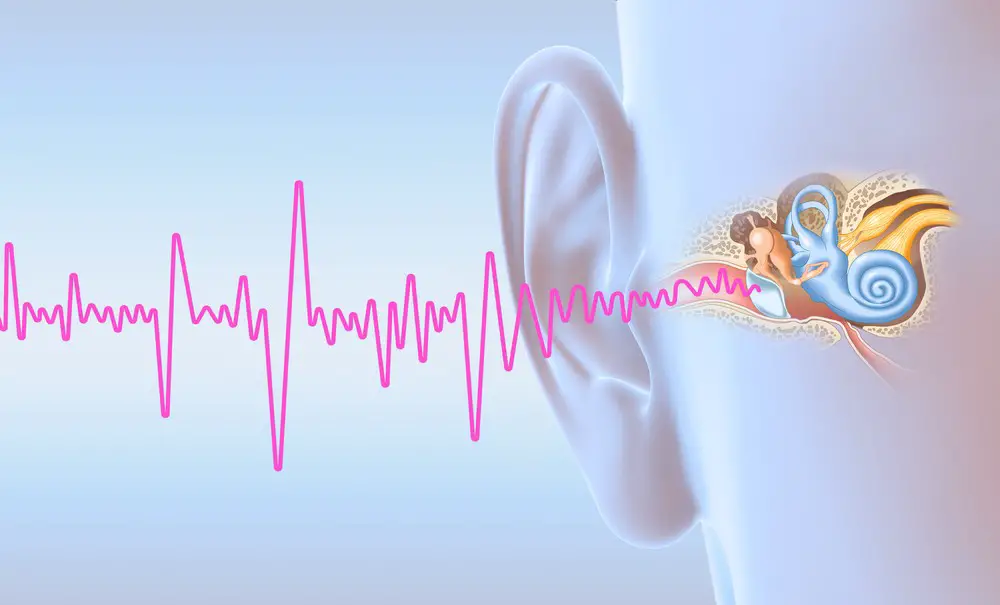As a BetterHelp affiliate, we receive compensation from BetterHelp if you purchase products or services through the links provided
If you suffer from tinnitus, you’re certainly not alone. An estimated 50 million Americans experience this condition, which is the perception of sound when there is no corresponding external noise. While it’s often described as “ringing in the ears,” tinnitus can manifest as a hissing, roaring, or pulsing noise.
For some people, tinnitus is merely a nuisance. But for others, it can be a debilitating condition that interferes with work, sleep, and everyday activities.
Stress can worsen tinnitus, so it’s essential to find ways to manage your stress levels.

What is tinnitus?
Tinnitus is a medical condition that causes a ringing or buzzing sound in the ears. The noise can be intermittent or continuous, and it may be soft or loud. Tinnitus is not a disease but a symptom of an underlying condition.
There are many possible causes of tinnitus, including ear infections, hearing loss, and excess wax buildup. The side effects of certain medications can also cause tinnitus. In most cases, tinnitus is not serious and does not require medical treatment.
However, if the noise is loud or persistent, it can interfere with daily activities and sleep. In some cases, tinnitus can lead to anxiety and depression.
Is it preventable?
There is no sure way to prevent tinnitus, but some steps may help reduce your risk.
If you are exposed to loud noises regularly, wear earplugs or earmuffs to protect your ears. If you have a job that involves loud noise, ask your employer about ways to reduce exposure.
Avoid using recreational drugs, as they can increase your risk of tinnitus. If you take medications known to cause tinnitus, talk to your doctor about alternative treatments.
What are the symptoms of tinnitus?
The most common symptom of tinnitus is a ringing or buzzing noise in the ears. Other symptoms include:
· Ear pain
· Hearing loss
· Dizziness
· Headache
· Fatigue
These symptoms may vary in intensity and may come and go. Tinnitus can sometimes be so loud that it interferes with daily activities.
How is it treated?
There is no cure for tinnitus, but there are ways to manage the symptoms.
Some people find relief by using sound-masking devices, which emit a gentle noise that can help drown out the ringing in the ears. Others find relief with counseling, biofeedback, or stress-reduction techniques.
In some cases, medication may be necessary to treat underlying conditions causing tinnitus.
Are stress and tinnitus-related?
Stress tinnitus is characterized by a ringing or buzzing sound in the ears induced by stress. The exact cause of stress tinnitus is unknown, but it is believed to be related to the body’s stress response.
When the body is under stress, it produces cortisol, a hormone that can lead to chronic inflammation. This inflammation can damage the cells in the inner ear, resulting in tinnitus. Stress tinnitus is often accompanied by other stress-related symptoms, such as anxiety, headaches, and insomnia.
Ways to cope with stress and anxiety to reduce your risk of stress tinnitus
There are many ways to cope with stress and anxiety; some methods may work better for you than others.
One way to cope with stress is to identify triggers and find ways to avoid them. If you can’t avoid your triggers, try to manage them healthily. For example, if work is a trigger for your stress, try to set aside time each day to relax and unwind.
Exercise is another excellent way to manage stress. It helps to release endorphins, which have mood-boosting effects. A healthy diet can also help reduce stress levels.
If you are struggling to cope with stress, talk to your doctor. They can help you find ways to manage your symptoms and reduce your risk of tinnitus.
What else can cause tinnitus?
In most cases, tinnitus is not serious and does not require medical treatment. There are many other possible causes of tinnitus, including ear infections, hearing loss, and excess wax buildup. The side effects of certain medications can also cause tinnitus.
However, if the noise is loud or persistent, it can interfere with daily activities and sleep. In some cases, tinnitus can lead to anxiety and depression.
To summarise: don’t stress about stress tinitus
While there is no cure for tinnitus, there are ways to manage the symptoms. Some people find relief by using sound-masking devices, while others find relief with counseling or stress-reduction techniques. Medication may sometimes be necessary to treat underlying conditions causing tinnitus.
If you are struggling to cope with stress, talk to your doctor. They can help you find ways to manage your symptoms and reduce your risk of tinnitus.

- How to Transform a Home’s Patio Space into a Relaxing Space - March 23, 2025
- 5 Strategies to Use a Cell Phone to Help Manage Your Stress - March 23, 2025
- 4 Ways to Use Measurements to Create a Relaxing Sleep Space - March 23, 2025
This site contains affiliate links to products. We will receive a commission for purchases made through these links.



